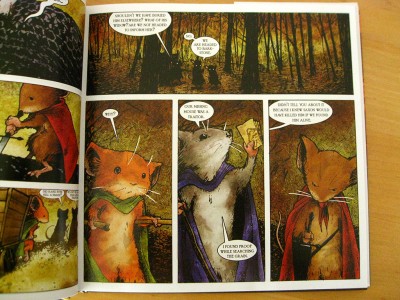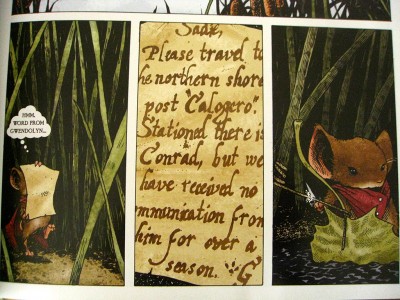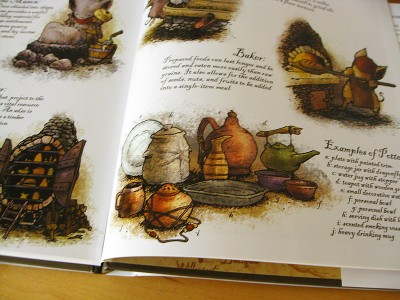Date read: 8.1.11
Book from: Personal collection
Reviewer: Emera
This is one of my most treasured finds from Readercon, picked up from the fantastic Somewhere in Time Books: Tanith Lee‘s 1988 limited-edition novella, with illustrations by Tom Canty. From the title and pastel cover I expected a tale of genteel swashbuckling, possibly YA; should have remembered that Lee never goes in for gentility. Elegance, yes – Lee is manically elegant – but never gentility.
Madame Two Swords starts in a familiar place for Lee: a sensitive, fearful, recently orphaned young woman in an early 20th-century alternate France is treated cruelly by both circumstances and humanity; her only spiritual sustainment comes from a book of poetry discovered in a secondhand shop:
“The blue cloth binding was quite pristine under its dust. It was a slender book, without lettering. I opened it out of curiosity.”
“The book was my talisman. Other girls wore crosses or medallions.”
The narrator is unemployed and evicted, and finds herself in dire straits, chased from one end of the socioeconomic spectrum to the other: too middle-class for hard labor, too unskilled to be a seamstress, too unwilling to accede to customers’ advances to be a waitress in the seedier cafés. At the extremity of her despair – enter Madame Two Swords, a black-eyed old woman of terrifying intensity, in whose museum-like house the narrator comes to some strange realizations.
In this France, the Revolution was sparked by the poet-demagogue Lucien de Ceppays in the city of Troies. This Revolution culminated in the execution of the original revolutionaries, including de Ceppays, by the fickle mob, and the occupation of France by a fearful British monarchy. Inhabitants now speak “Frenish” as often as French, and labor in a depressed economy overseen by a puppet government. The narrator’s talisman-book is, of course, a volume of de Ceppays’ work, and contains besides a haunting watercolor portrait of him. The story quickly sees her devotion to his image and memory moving beyond girlish fantasy.
The final supernatural twist, when it comes, is powerful in effect, in large part because of the supreme delicacy with which Lee constructs the fleeting image central to the revelation. There’s an also-delicate but definite touch of gender-bending, which I wish I could discuss in more detail without being spoilery, but suffice it to say that I liked how Lee addressed its implications, a lot. This is a story that makes use of deeply Gothic-Romantic tropes (duh, Tanith Lee) yet resists being just romantic; it’s fierce and intelligent and ultimately insists on the dignity of all of its characters.
And so my love affair with Tanith Lee continues! If you like Revolutionary France and cross-lingual puns and intelligent Gothic fantasy, if you love Tanith Lee and beautiful books, you might consider treating yourself to a copy of Madame Two Swords.
Two more photos (can’t help showing it off!) under the cut:
Continue reading Madame Two Swords, by Tanith Lee (1988) E






